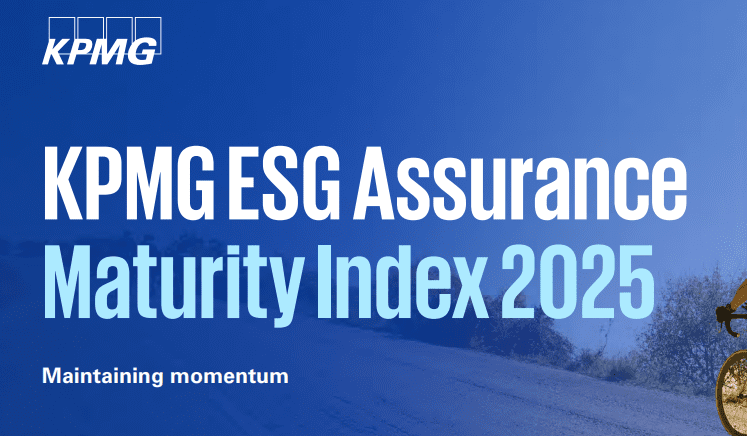Just back from London, where GoldenSource’s annual summit for EMEA customers, partners and industry leaders, NAVIGATE’25, was held last week.
This year, a number of conversations I had with our attendees centered on ESG, especially amid the shifting regulatory environment and recent headlines. What stood out was a clear consensus: even with ‘political headwinds’ from the US and ongoing regulatory ambiguity, most global firms are continuing with CSRD reporting and assurance.
This observation is strongly backed by the latest KPMG research, which finds that 74% of surveyed companies remain on track with their CSRD plans. For these organizations, ESG assurance has become much more than a compliance exercise. In fact, it’s now a strategic imperative for building trust, driving resilience, and unlocking business value.
We’re seeing this in practice, too. For example, one client is awaiting formal approval of the revised CSRD scope and new technical specifications later this year, even as their ESG budget is already set. Regulatory adjustments, which are expected to become binding, are actually streamlining data requirements and raising reporting thresholds. This is making it easier for midsize firms to comply.
Beyond the EU, we see many similarities and overlaps with other jurisdictions. The UK regime likewise mandates standardized disclosures, though its focus is on financial materiality and climate‑related risks. In the US, federal SEC rules and Californian laws address emissions and their financial impacts, particularly for large public or private companies. In practice, RFI and RFP requirements increasingly reference a mix of these frameworks—EU CSRD and SFDR, UK disclosures, California’s mandates, and even select APAC regimes—underscoring the interconnected nature of global ESG requirements. Sometimes firms re-label these requirements as “sustainability reporting,” but the substance remains the same: standardized, reliable, and comparable disclosures are now an expectation.
The lesson is clear: with ESG regulations, change is both intended and inevitable. Thresholds shift, data points are added or dropped, and definitions evolve. And after every revision comes the next one. Unless a business operates very narrowly in one market, it must also stay ahead of similar or overlapping frameworks across multiple jurisdictions. Managing these requirements with efficiency and minimal duplication is now central to regulatory and competitive success.
KPMG’s ESG Assurance Maturity Index highlights a growing gap between Leaders and Beginners. The most mature organizations enjoy greater market share, higher profitability, stronger reputations, and increased shareholder value, while others race to catch up. Board engagement and investment in digital systems are proving decisive, especially as reporting demands become more complex.
In short, the fundamentals haven’t changed even as frameworks evolve. The demand for robust, transparent ESG assurance from clients, investors, and regulators is only intensifying. Investing today in flexible solutions for sustainability reporting—and in robust ESG data management that ensures accurate, auditable, and actionable insights—is essential for those who want to lead the market, not lag behind.

